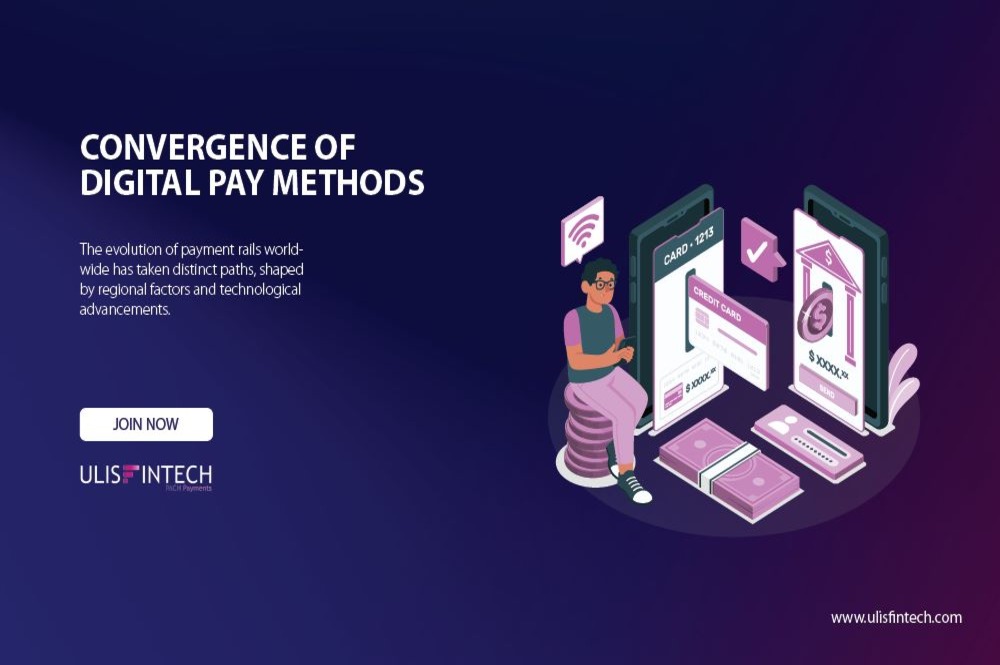Financial Services Industry Growing in MENA Region
Mar 31, 2022 - 10 MINS READ

MENA region's financial services industry to reach its objectives in a timely and cost-effective way
Today, the financial services industry is regarded as one of the most quickly expanding businesses in the world, owing to how long it has been overdue for the sector to adapt to the new era of digitization, and how much potential tech has inside financial services. This puts a whole ecosystem on the edge of a technological explosion. As a result, Open Banking has emerged as a crucial pioneer in the convergence of technology and finance. Since the implementation of PSD2, UK legislation has permitted open banking throughout Europe. Globally, there has been a boom in the Open Banking awakening. Open Banking has now extended to nearly every continent on the earth.
Thanks to its robust foundation, the Middle East and North Africa (MENA) area is being lauded as the new poster child for open banking, which prepares the region for enormous potential.
Recognizing the way of Open Banking
Open banking, often known as open bank data, is a banking practice in which third-party financial service providers use APIs to access consumer banking, payment, and other data from banks and NBFCs. Consumers, financial institutions, and third-party service providers can all access the network of accounts and data across institutions through open banking. Customers must consent to the sharing of personal data by ticking a box next to the app's 'terms of service' page. APIs from third-party companies may get access to client data.
Instead of relying on centralization, the notion of open banking encourages large, established banks to compete with small and new banks. Large banks will need to work hard to incorporate new technology in order to deliver better customer service at a reduced cost.
- For financial service providers - At the very top of the food chain, open banking will enable financial service providers to dramatically innovate on their product offers to companies.
- For enterprises (big and small) - Financial service providers' innovations will result in more effective and efficient financial instruments in your business, particularly payments. That means greater automation, more time freed up, fewer headaches from manual chores, and, ultimately, less money spent.
- Customers will benefit from improved methods to spend, borrow, and invest as a result of open banking.
The MENA region is in an excellent situation.
The MENA region's economic vision of a data-driven economy and the leveraging of data as a result of its value discovery is a crucial element pushing the importance of creating financial technology. In comparison to the rest of the world, the Middle East and North Africa (MENA) area is a late adopter of open banking. The slogan "last but not least" has never been more pertinent as the area begins to diversify away from oil. With the present scale of the financial services industry, the number of active organizations, and support from regulators as well as clients, 82 percent are open to using FinTech for financial management. The scenario is set for open banking to take off, and the conditions are as good as they can be. This is when advancing comes in.
Investing in the MENA area during COVID-19
Global foreign direct investment is anticipated to fall by at least 30% in 2020 as a result of the COVID-19 issue, according to the most hopeful scenario. Because of the high proportion of FDI in the primary and industrial sectors, as well as the direct and indirect implications of the oil price decline, MENA nations are expected to be hit much harder.
To address the problem, MENA countries immediately implemented policy solutions. In addition to policy help, several countries build up crisis teams to inform and retain foreign investors. Although mitigating the impact of the pandemic on investment is challenging, appropriate strategic policy reflections are developing to analyze the role of investment promotion agencies, value chain disruption, and the region's future orientation. Investment recovery policies should emphasize the developmental benefits of FDI and engage MENA nations in broader reforms aimed at more inclusive, green, and resilient growth.
Leapfrogging
We get to learn from more established markets such as Europe, North America, and even Asia as a "late adopter." All of them provide unique perspectives on Open Banking. This allows the MENA region to skip forward to full-fledged Open Banking implementation. Leapfrogging is a concept that originated in the realms of industrial organization and economic growth and is now used in a variety of economic and business disciplines. The core idea behind the theory of leapfrog is to use prior experiences and knowledge to determine the most efficient method to use resources and approach a strategy. As a result, an ideal path for planning and development is created, establishing a shortcut to success. The MENA area avoids the requirement for a trial-and-error period by leapfrogging. Instead, ecosystem leaders like regulators, banks, and FinTech may examine the optimal method for their individual markets by doing market research and analyzing earlier implementation and case studies.
Technology may also tremendously benefit from the consequences of leapfrogging. Typically, new technology goes through several iterations, testing, and upgrades months before and even after it goes online. Developers are always debugging problems with new technology, no matter how well it has been vetted. Simply because launching a new product or service exposes you to a significantly larger pool of people in a variety of circumstances.
Immediate policy reactions to investment
Governmental actions
The government's containment efforts to prevent the pandemic's harmful impacts have caused numerous firms, particularly multinational corporations (MNEs) operating in MENA economies, to suspend substantial sectors of output. Supply difficulties in several industries prompted the implementation of import restrictions and export prohibitions. In the health and digital sectors, however, several MENA governments cut import duties, gave sectoral support, and promoted moving to manufacturing.
Some nations have also implemented fiscal and financial measures to relieve pressure on certain industries and boost contractual economic activity - moves that benefit international investors as well. Some MENA nations have imposed local market access restrictions on international investors, who can then take advantage of specialized incentives. As a result of the crisis, certain MENA nations chose to grant foreign investors greater access to their domestic markets under certain conditions or in some sectors in order to unleash their operations.
- Algeria: The administration has declared plans to reduce the country's import bill by at least USD 10 billion (6 percent of GDP). The authorities have prohibited the export of a number of things, including food, medical supplies, and sanitary products. They did, however, declare that agricultural investments will be prioritized in order to assure food security. The President directed the Minister of Agriculture and Rural Development to establish a framework to encourage agricultural investments, whether domestic, international or a combination of the two.
- UAE: The governments of various emirates have enacted financial aid programs. Dubai offered a 20% return on customs duties on imported items, as well as a 10% decrease in water and power rates. The Abu Dhabi government has cut or postponed certain government taxes and fines, as well as provided significant refunds on lease payments for enterprises in the tourist, hospitality, and entertainment industries. Companies benefit from fee reductions in offshore free zones. For a short time, the Abu Dhabi Global Market waived all commercial license, business activity, and data protection renewal costs. The Dubai International Financial Centre has also abolished yearly licensing costs for new firms until the end of 2020 and reduced renewal rates for current licensees by 10%.
- Jordan: The authorities have agreed to reduce taxes, postpone building permit fees and monthly payment dues on investment firms functioning inside development zones, and prolong the validity of construction and trade licenses for projects in development zones until June 1, 2020.
EndNote
However, by utilizing technology that has been rigorously trialed and proven in much bigger markets like Europe, developers in the MENA region may bypass all previous versions of technology when developing the infrastructure and straight move to the most recent version.
Finally, leapfrogging would enable the MENA region's financial services industry to reach its objectives in a timely and cost-effective way, which would otherwise take decades to learn and develop through the natural course of technological evolution.







